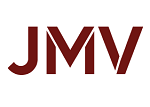
In the U.S., all residents are required to pay taxes on all sources of income that exceed $600. That applies to both employees and what the IRS might term as a “freelancers.” Generally, freelancing is synonymous with being self-employed.
According to the Free Dictionary website, the definition of freelancing is as follows: “a person who sells services without working on a salary basis for one employer, a person who contends in causes without attachment or allegiance.”
With the current COVID economy leaving so many Americans out of work, many people are turning to freelancing as a means of supporting themselves. If this includes you, you are to be commended for taking the initiative.
If this is your first time working as a freelancer, you might not be aware of the nuances of reporting and paying your taxes under this scenario. We hope the following information will point you in the right direction.
Paying Quarterly Estimated Taxes
As a freelancer, the IRS expects you to pay the your taxes during the tax year. If your income from freelancing is significant, the IRS further requires that you make an estimated quarterly income tax payment. Failure to do so could result in penalties and interest.
Securing Income Reporting Documents
As an employee, you would typically receive a W2 from your employer at the end of the tax year. The W2 includes all of the wages/commissions/bonuses you received for your work.
As a freelancer, you should be receiving a form 1099 from all companies to whom you provided freelancing services. By law, all such clients are required to provide you with a form 1099 at the end of the tax year if your earnings from them exceeded $600. Even if you don’t receive 1099s for all you earned during the year, you are still required by the IRS to report all of your freelancing wages.
Keeping Track of Expenses
As a freelancer, you will be permitted to write off the business expenses you incurred directly related to carrying out your duties as a freelancer. For each tax year, you need to track all said expenses and provide support with receipts or canceled checks.
Some of the expenses you might be able to claim could include (see IRS guidelines):
- Travel and transportation expenses
- Office supplies
- Office and equipment rent
- Business lunches
- Business insurance expenses
- Software subscriptions
Filling Out the Appropriate Tax Return Documents
As a freelancer, you will need to submit a Form 1040 as your baseline tax return. In addition to the form 1040, you will also be required to submit a form Schedule C to report all of your freelancing activities.
On the Schedule C form, you will report all of your 1099s as well as any other income you might have earned in the course of acting as a freelancer. In the business expense section, you will list all of the business expenses you feel you are entitled to based on IRS guidelines. After deducting your expenses from income, you will arrive at the income number upon which you need to pay taxes.
At JMV Financial Services, we highly recommend that you learn about your tax-paying responsibilities before you reach the end of the tax year.

